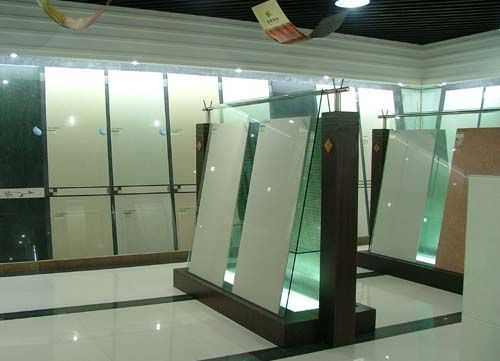
The long-awaited new "National Standard for Ceramic Tiles" is now officially in effect. Compared to the previous version, this updated standard introduces more detailed reference indicators and stricter packaging regulations, aiming to better protect consumer rights. Although it has been two months since the implementation, the response from the Jin Cheng ceramic market has been relatively quiet. Many consumers remain unaware of the changes, and even some sales representatives from major tile brands have no clear understanding of the new rules. However, industry insiders believe that behind this calm lies a brewing transformation.
How is the market responding to the new ceramic tile standards? At the Lanhai Ceramics Home Furnishing Market, most ceramic tiles are still on sale, with various quality grades available. A reporter randomly interviewed several consumers and found that the majority were not familiar with the new standard. One person mentioned they had seen news about the new standard but couldn't explain its details. While it's understandable that consumers may not be fully aware, what surprised the reporter was that even some salespeople at well-known brands were unfamiliar with the new requirements.
Integration Is Taking Shape
Although the market reaction has been muted, for most ceramic tile manufacturers, the new national standard represents a significant step forward. Brands such as Champion, Oushen Nuo, Bode, Asia Miner, and Dongpeng all agree that the main benefit of the new standard is unifying industry practices and accelerating the consolidation of the ceramic tile sector. In the past, the domestic ceramic tile industry was highly fragmented due to regional differences, with varying local and national standards. Now, the new national standard aims to raise technical requirements and improve product quality across the board.
Strength and Weakness
The higher technical requirements set by the new standard primarily affect smaller enterprises. For large, well-established brands, their internal standards often exceed the national ones. For example, while the national standard allows a straightness error of ±1.2mm for 600mm×600mm polished tiles, many companies maintain control within 0.5mm, with some achieving as low as 0.2–0.3mm. A distributor from Baldite explained: “Well-known brands often compare their products against corporate standards, Euro 2 standards, and national standards. Corporate standards are usually the highest. As the market evolves, big brands will grow stronger and gain more market share, while smaller businesses may eventually be forced out.â€
Round Ceiling Light,Circular Ceiling Light,Circular Led Ceiling Light,Round Ceiling Lamp
Ningbo Royalux Lighting Co., Ltd. , https://www.royaluxlite.com